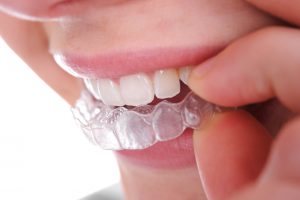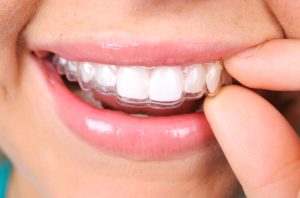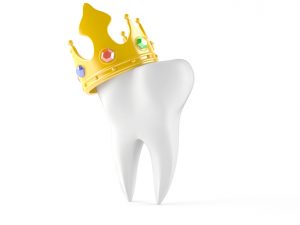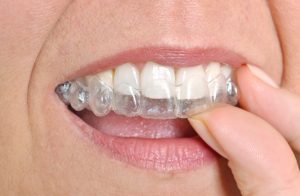 Sometimes people mistakenly think replacing missing teeth isn’t a huge priority — just ask Tyler Johnson, a player for the Miami Heat. He doesn’t want to fill that gap in his smile if he’s just going “to lose it two, three more times.”
Sometimes people mistakenly think replacing missing teeth isn’t a huge priority — just ask Tyler Johnson, a player for the Miami Heat. He doesn’t want to fill that gap in his smile if he’s just going “to lose it two, three more times.”
We hate to break it to you Tyler, but the truth is, finding a solution like dental implants in Fort Worth should be number one on your list after losing even one tooth. A comprehensive solution to tooth loss, dental implants give you back the visible crown with which you eat and speak as well as its stabilizing root.

 From backyard barbecues to pool parties to weddings to pop-up food trucks with some of the best treats in DFW, Summer in the metroplex always gives you plenty of reasons to smile. But when you do, you immediately become self-conscious of your crooked teeth. But enough is enough – you’re finally ready to address your smile imperfections, but since you’re a busy entrepreneur, metal braces just aren’t for you. What other solutions do you have? Dr. David Tillman, your premier dentist in Fort Worth, offers Invsialign to straighten your teeth without calling more attention to the flaws to your pearly whites. Find out how Invisalign stacks up against traditional metal orthodontics in this post.
From backyard barbecues to pool parties to weddings to pop-up food trucks with some of the best treats in DFW, Summer in the metroplex always gives you plenty of reasons to smile. But when you do, you immediately become self-conscious of your crooked teeth. But enough is enough – you’re finally ready to address your smile imperfections, but since you’re a busy entrepreneur, metal braces just aren’t for you. What other solutions do you have? Dr. David Tillman, your premier dentist in Fort Worth, offers Invsialign to straighten your teeth without calling more attention to the flaws to your pearly whites. Find out how Invisalign stacks up against traditional metal orthodontics in this post. Have you been wanting to straighten your teeth or close the gap right in the front of your mouth? Why haven’t you? Oh, right—you’re too old for braces, right? The Office of
Have you been wanting to straighten your teeth or close the gap right in the front of your mouth? Why haven’t you? Oh, right—you’re too old for braces, right? The Office of  The “blur” effect seems to happen voluntarily as you mature. Sometimes, it’s hard to remember what you accomplished the day before because your brain is too busy skimming quickly over your daily activities. It’s not necessarily about packing too much into your day, but more about a lack of mindfulness. Actually concentrating on each pastime and how it’s affecting your life from your mental to physical health. The same “blur” sensation can take place with your oral health as well, especially when it comes to the brightness of your teeth. Are you confused about how your teeth suddenly seem so discolored? The office of David Tillman, DDS offers teeth whitening in Fort Worth, TX that can dramatically change your smile for the better. This is a dental appointment that you won’t be able to forget!
The “blur” effect seems to happen voluntarily as you mature. Sometimes, it’s hard to remember what you accomplished the day before because your brain is too busy skimming quickly over your daily activities. It’s not necessarily about packing too much into your day, but more about a lack of mindfulness. Actually concentrating on each pastime and how it’s affecting your life from your mental to physical health. The same “blur” sensation can take place with your oral health as well, especially when it comes to the brightness of your teeth. Are you confused about how your teeth suddenly seem so discolored? The office of David Tillman, DDS offers teeth whitening in Fort Worth, TX that can dramatically change your smile for the better. This is a dental appointment that you won’t be able to forget! Fort Worth has some of the best barbecue in the United States. Sadly, since you’re missing some of your teeth, you can’t enjoy this Texas staple like you used to – it’s been a few years since you’ve had brisket with a side of grilled corn on the cob. You want to restore your smile and get back to enjoying all of the foods you love, but you’re not sure how
Fort Worth has some of the best barbecue in the United States. Sadly, since you’re missing some of your teeth, you can’t enjoy this Texas staple like you used to – it’s been a few years since you’ve had brisket with a side of grilled corn on the cob. You want to restore your smile and get back to enjoying all of the foods you love, but you’re not sure how  It’s a beautiful day in Fort Worth and you drove along I-820 enjoying the breeze, clear skies, and wide open spaces Texas is famous for. Since you’re a little hungry, you stop at Tacusa for a few of their famous street tacos. You’re enjoying the delicious barbacoa – you take the next bite, only to experience the exact opposite of what you were expecting: severe pain. After checking in the bathroom mirror, it looks like your one of your teeth is now broken. You want this fixed, and fast. Who can you see for a same-day dental crown in Fort Worth, TX? Dr. David Tillman offers revolutionary CEREC dental crown technology and makes waiting for a permanent crown a thing of the past.
It’s a beautiful day in Fort Worth and you drove along I-820 enjoying the breeze, clear skies, and wide open spaces Texas is famous for. Since you’re a little hungry, you stop at Tacusa for a few of their famous street tacos. You’re enjoying the delicious barbacoa – you take the next bite, only to experience the exact opposite of what you were expecting: severe pain. After checking in the bathroom mirror, it looks like your one of your teeth is now broken. You want this fixed, and fast. Who can you see for a same-day dental crown in Fort Worth, TX? Dr. David Tillman offers revolutionary CEREC dental crown technology and makes waiting for a permanent crown a thing of the past.  Imagine dazzling your family with your smile in the Christmas photo this year! Wouldn’t that feel better than hiding your teeth like you usually do? You can create the perfect smile this Christmas with porcelain veneers in Fort Worth, TX, and Dr. David Tillman can help!
Imagine dazzling your family with your smile in the Christmas photo this year! Wouldn’t that feel better than hiding your teeth like you usually do? You can create the perfect smile this Christmas with porcelain veneers in Fort Worth, TX, and Dr. David Tillman can help! You are exposed to a lot of sugar throughout the day. Perhaps you start off with coffee that has 2 or 3 packets of sugar in it. At lunch time, you have a soda. Once the afternoon lull hits, you have an energy drink or maybe a candy bar. All of these foods are laden with sugar, which can damage your teeth. You’ve heard this about sweet foods since you were a child, but what does it actually mean?
You are exposed to a lot of sugar throughout the day. Perhaps you start off with coffee that has 2 or 3 packets of sugar in it. At lunch time, you have a soda. Once the afternoon lull hits, you have an energy drink or maybe a candy bar. All of these foods are laden with sugar, which can damage your teeth. You’ve heard this about sweet foods since you were a child, but what does it actually mean?  Maybe you had braces as a teen and have noticed your teeth shifting back into the original position. Or perhaps you never had orthodontic treatment at all — either way, it’s never too late to get the smile you want. Invisalign is the clear braces solution that reveals results subtly, and in less time than traditional metal braces.
Maybe you had braces as a teen and have noticed your teeth shifting back into the original position. Or perhaps you never had orthodontic treatment at all — either way, it’s never too late to get the smile you want. Invisalign is the clear braces solution that reveals results subtly, and in less time than traditional metal braces.  The irony of the situation is almost overwhelming. You’re in the middle of the Fort Worth Stockyards, yet you haven’t been able to eat steak in years. Your missing teeth have made it entirely too difficult, plus just saying the word “steak” usually makes your lisp. You planned on having a good time today, but all you can think about is food that you can’t actually eat.
The irony of the situation is almost overwhelming. You’re in the middle of the Fort Worth Stockyards, yet you haven’t been able to eat steak in years. Your missing teeth have made it entirely too difficult, plus just saying the word “steak” usually makes your lisp. You planned on having a good time today, but all you can think about is food that you can’t actually eat.